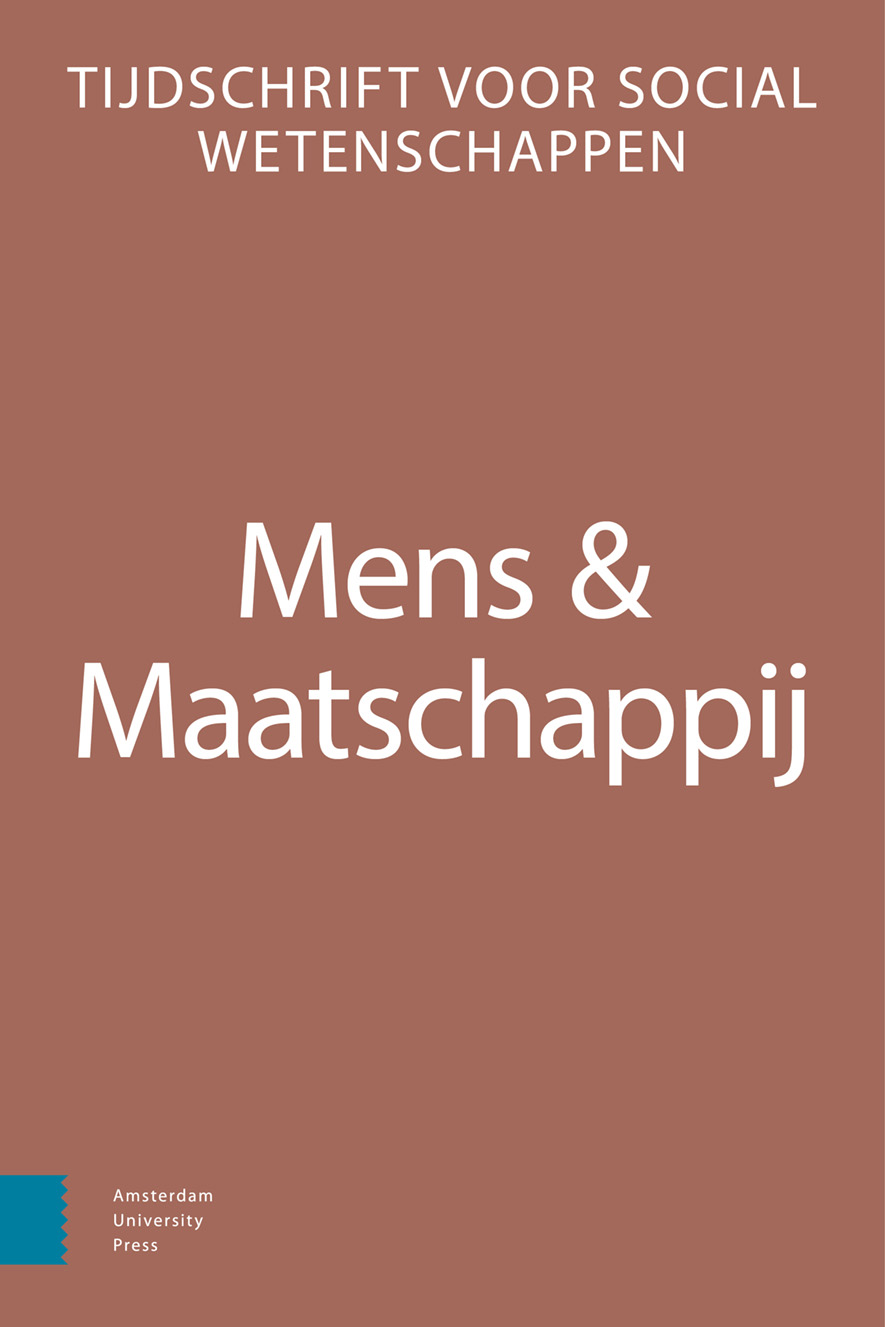- Home
- Publications
- Mens & Maatschappij
- Previous Issues
- Volume 87, Issue 4, 2012
Mens & Maatschappij - Volume 87, Issue 4, 2012
Volume 87, Issue 4, 2012
-
-
Meeting is mating: utopie of werkelijkheid?
More LessAuthor: Warda BelabasMeeting is mating: utopia or reality? .
The topic of stimulating interethnic contact – especially at schools – is common in the Dutch policy debates since the early 1980s and 1990s. The municipality of Rotterdam, the second largest city in the Netherlands, established the so-called "friendship school" in 2003 in an attempt to stimulate interethnic contact. The label indicates schools that are situated in homogenous neighborhoods that are either populated with autochthonal groups or immigrant groups. The friendship project means undertaking joint activities with schools in other neighborhoods with the aim of having pupils meeting pupils from different socio-economic, ethnic or cultural groups. Such contacts are assumed to increase mutual understanding and tolerance, as originally expressed in the so-called contact hypothesis. However, this hypothesis has not remained unchallenged. The central question in this study was whether policy makers and civil society organizations didn’t assume too easily that interethnic contact would lead to success. The results of this study show that children and teachers evaluate and experience this so-called friendship school both as positive and negative. The most important outcome of this study however is that stimulating interethnic contact at schools does not necessarily mean that all the conditions derived from the contact hypothesis should be met. To set up successful interethnic meetings at schools, one must above all make sure that children from different groups are not aware of any unequal conditions between them and one must not include cultural and ethnical differences in the activities for children.
-
-
-
Lokale concentratie van allochtonen en steun aan de PVV - Het effect van het percentage niet-westerse allochtonen op het percentage PVV-stemmen, in 246 gemeenten in 2006
More LessAuthors: Marnix van der Paauw & Andreas FlacheLocal concentration of immigrants and support for the PVV: The effect of the percentage non-western immigrants on the percentage PVV votes, across 246 Dutch municipalities in 2006.
In this article we study the effect of the percentage non-western immigrants in a municipality on the percentage PVV votes at the municipality level, for 246 Dutch municipalities in 2006. Two contradictory hypotheses are tested. Ethnic group competition theory and integrated group threat theory suggest that a higher percentage non-western immigrants is associated with more PVV voting, whereas from the perspective of intergroup contact theory we derive the expectation of a negative association. We control in the analysis for aggregate characteristics of a municipality, such as characteristics of the age distribution, distribution of educational levels, socio-economic status, income distribution, number of residents, distribution of religious groups and average perceptions of unsafety. Multivariate regression analyses indicate that a higher percentage non-western immigrants is related to more PVV voting. Moreover, ethnic residential segregation in the municipality is negatively associated with PVV support, suggesting that it is not a lack of exposure to the ethnic minorities that explains why there is more PVV support in municipalities with more non-western immigrants.
-
-
-
Van uitstel komt afstel? - Grenzen aan de huwelijkstiming voor Nederlandse vrouwen in een langdurige periode van crisis
More LessAuthor: Fleur ThoméseToo late for marriage? Normative constraints on marriage timing in a disruptive period in The Netherlands .
Using marriage timing and marriage market theories, three hypotheses have been formulated linking cultural norms to the timing of first marriage of Dutch men and women during and after the economic Depression and the Second World War. Event history analyses on retrospective survey data among 4,494 Dutch men and women born between 1903 and 1937 confirm that both men and women experienced age-related delays from the Depression and the war. Women were more likely than men to stay single, probably because the male gender role allowed for compensating advanced age by good economic prospects.
-
-
-
Laakbare wetenschap - Over alledaagse verleidingen en normoverschrijding in de wetenschap
More LessAuthor: Aafke KomterTwo categories of scientific misconduct should be distinguished: on the one hand blatant scientific fraud such as fabrication, falsification and plagiarism (FFP), and on the other hand questionable research practices (QRPs) such as data cooking, omitting contradictory evidence, rephrasing hypotheses till a positive result appears. Research results show that 2 percent of all scientists commit FFP, whereas up to 34 percent of scientists engage in questionable research practices. In addition to the prevalence of misconduct, the article discusses personality, motives and demographic characteristics of scientific fraudsters, the role of the social context, possible theoretical and methodological approaches, and issues of ethics and prevention.
-
-
-
Boekbespreking - Van Londen, M. Exclusion of ethnic minorities in the Netherlands : the effects of individual and situational characteristics on opposition to ethnic policy and ethnically mixed neighbourhoods. Nijmegen, Van Londen, 2012, 207 pp. ISBN 978 90 9026 509 4
More LessAuthor: Borja Martinovic
-
Volumes & issues
Most Read This Month


